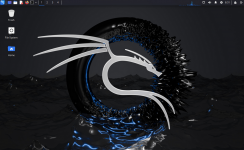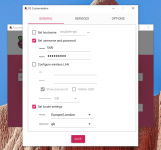Fixxx
Moder
- Joined
- 20.08.24
- Messages
- 1,041
- Reaction score
- 4,023
- Points
- 113

The latest version of Kali Linux for this year has been released. The new version includes 14 new tools and numerous improvements and the developers have announced the discontinuation of support for several outdated features. This release brings an update to the Linux kernel version 6.11, GNOME 47, improved support for Raspberry Pi, a new default version of Python, and the announcement that there will no longer be builds for i386. The discontinuation of i386 images is related to Debian, on which Kali is based, ceasing support for 32-bit builds in October of this year. However, since 32-bit programs can still run on x86-64, the developers at Offensive Security decided not to remove i386 packages from the distribution.
"Although this architecture has long been outdated, it has been supported for many years. It was only in 2019 that major Linux distributions (Fedora 31 and Ubuntu) began to phase it out. Finally, in October 2024, Debian dropped the i386 build (and, consequently, OS images). Kali Linux is based on Debian and follows its lead: there will be no more images and releases for this platform," the developers wrote. "It is important to note that this is not an instant death for i386. Architectures die differently. The kernel and i386 images have disappeared, but i386 packages in general have not been removed from the repository. This means that i386 programs can still run on a 64-bit system, either directly through the package manager or via Docker images."
In Kali Linux 2024.4, the default Python interpreter is now version 3.12, and installing packages using the pip command is now prohibited by default. As explained by Offensive Security earlier in 2023, running pip as root to install system-wide packages can lead to conflicts with the built-in package manager, such as apt. For those who want to use something like pip, the command pipx is now available in Kali as a replacement. Another significant change is the deprecation of DSA SSH keys, as Kali Linux 2024.4 comes with OpenSSH (9.8p1). Specifically for those who still need support for these keys for legacy systems, the new build includes an SSH1 client, which, according to the developers, is an SSH client "frozen at version 7.5". At the same time, the creators of Kali warn that tools that "do not recognize" the ssh1 command will no longer work correctly with outdated systems requiring DSA keys. As mentioned earlier, the new release features extended support for Raspberry Pi, specifically the Raspberry Pi Imager. This tool allows users to find supported images for Raspberry Pi and quickly write them to a microSD card. Now, in Kali Linux 2024.4, there is an imager for pre-configuring settings that will be automatically applied to the Kali Linux image for Raspberry Pi when writing it to the microSD.
Regarding the new tools, Kali Linux 2024.4 includes a total of 14:
- bloodyad — a framework for privilege escalation in Active Directory;
- certi — requests ADCS certificates and discovers templates;
- chainsaw — quick search for forensic artifacts in Windows;
- findomain — a fast and comprehensive solution for domain reconnaissance;
- hexwalk — a hexadecimal analyzer, editor, and viewer;
- linkedin2username — generates username lists for LinkedIn;
- mssqlpwner — interaction and hacking of MSSQL servers;
- openssh-ssh1 — Secure SHell (SSH) client for the outdated SSH1 protocol;
- proximoth — a tool for vulnerability detection in attacks via control frames;
- python-pipx — execution of binaries from Python packages in an isolated environment;
- sara — RouterOS Security Inspector;
- web-cache-vulnerability-scanner — a CLI tool based on Go for testing web cache poisoning;
- xsrfprobe — an advanced toolkit for auditing and exploiting CSRF and XSRF;
- zenmap — a frontend for Network Mapper (nmap).



